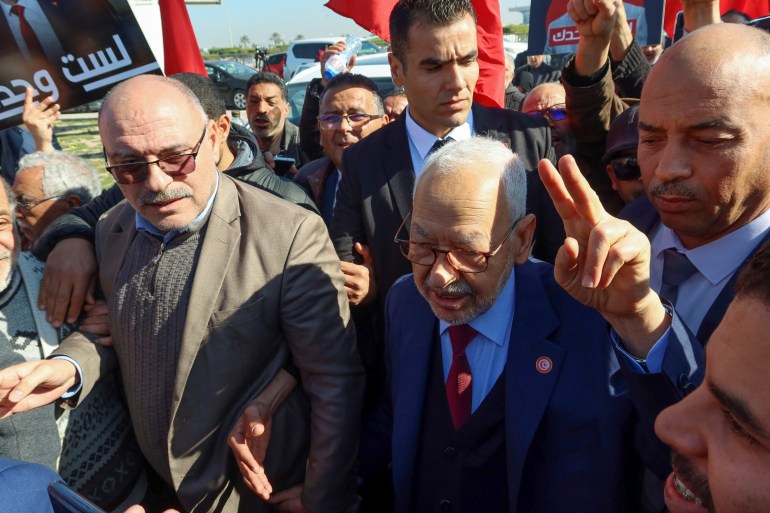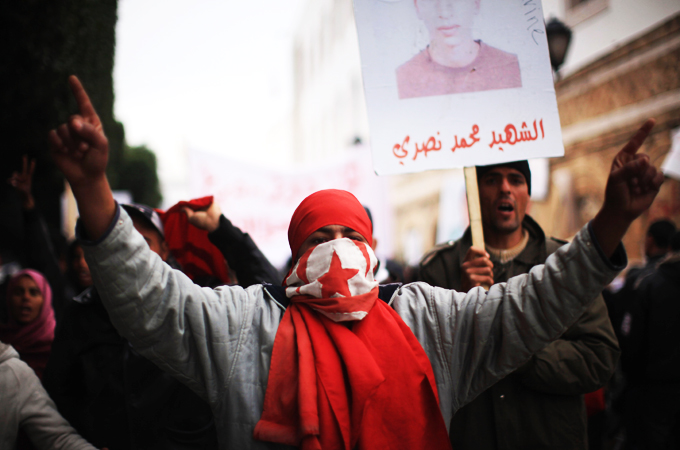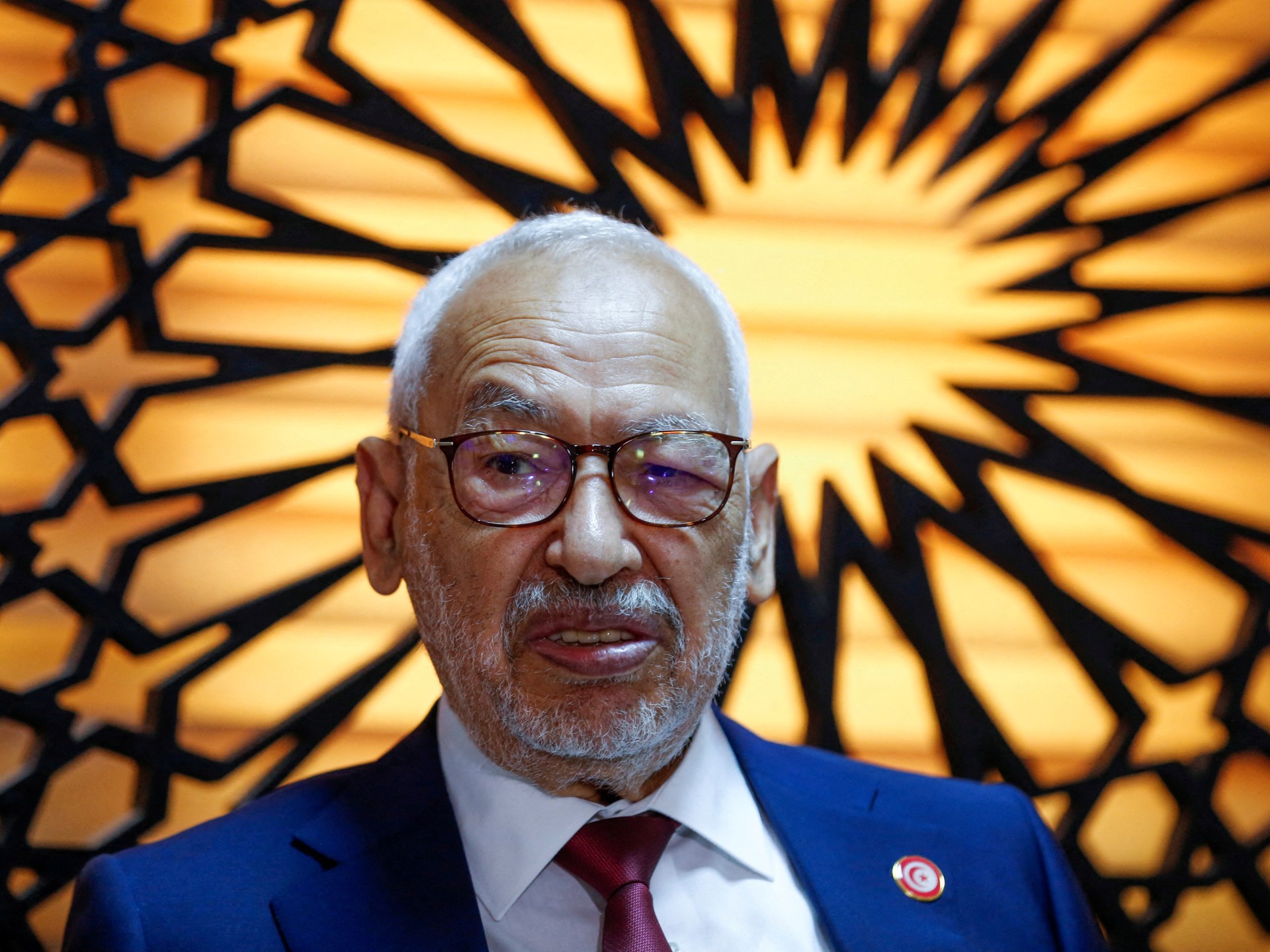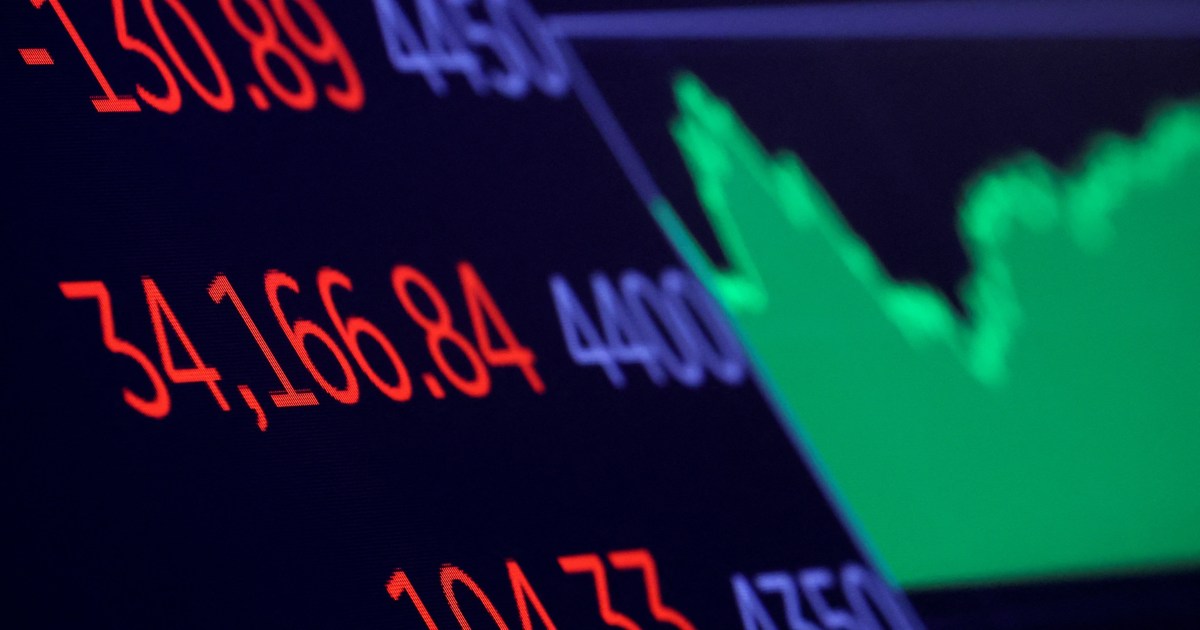Who is Ghannouchi, the Ennahdha party leader arrested in Tunisia? | News
A Tunisian judge has ordered the imprisonment pending trial of Rached Ghannouchi, the leader of Tunisia’s main opposition party and an ardent critic of President Kaid Saied, on charges of incitement against state authorities.
Thursday’s order marks the latest development in a tumultuous week that started with nearly 100 policemen raiding the house of the Ennahdha party leader while he was breaking his Ramadan fast on Monday.
Local news reported that the 81-year-old leader had been arrested on a warrant by counterterrorism prosecutors as part of an investigation into recent “provocative” comments. The party and its supporters say the charges are politically motivated – part of a wider campaign that has seen other party officials, including an ex-prime minister, arrested.
Hours later, on Tuesday, Tunisian police raided and closed the Ennahdha headquarters in the capital, Tunis, amid a growing crackdown on opponents of Saied, who sacked the government in 2021, dissolved the democratically-elected parliament and started ruling by decree, in what his opponents have called a “coup”.
Ennahdha, a self-styled “Muslim democrat” party with its roots in political Islam, has dominated politics in the North African nation since the 2011 revolution that triggered Arab Spring protests across the region and toppled the longtime leader President Zine El Abidine Ben Ali.

Early life
Ghannouchi was born in a village in Tunisia’s southern province of Gabes to a poor farming family in 1941, when the country was still under French colonial rule – which would last until 1956.
Ghannouchi graduated in theology in 1962 from Ez-Zitouna University, a prestigious and historic centre of Islamic learning.
Ghannouchi was studying agriculture at Cairo University in Egypt in 1964, but then moved to Syria where he graduated in 1968 in philosophy at the University of Damascus. He continued to study philosophy the following year at Paris’s Sorbonne University in France.
After finishing his studies in the early 1970s, Ghannouchi started building a movement with a small group of young thinkers disenchanted with Tunisian secularism practised under authoritarian leader Habib Bourguiba.
The movement was based on Islamic values while being committed to multiparty democracy. Its aim was to contribute to the democratisation of Bourguiba’s regime while also creating space for Islam to be included in the public sphere. In 1981, Ghannouchi founded the Islamic Tendency Movement, a party that would be later named Ennahdha.
Ghannouchi was an eclectic intellectual thanks to the different trends and traditions that he had been exposed to throughout his formative years, according to Andrew March, professor of political science at the University of Massachusetts and expert on political philosophy and Islamic law.
He drew inspiration from the Egyptian Muslim Brotherhood, but also from Tunisian thinkers and regional philosophers such as Algerian Malik Bennabi.
“Ghannouchi’s ideology cannot be simply limited to the ideology of the Muslim Brotherhood, it is to a large extent because of Bennabi, who had a wider understanding of the concept of civilisation – one that was not exclusive to Islam but that included other religions and cultures,” said March.
Bennabi also pushed on the need for Islam to play a role in the public sphere, but not as the sole player, while he also stressed that Islamic law can be advanced in multiple ways – ideas that would inspire Ghannouchi’s philosophy.
Ghannouchi best articulated his views on Islam and democracy in the book Public Freedom. “The core idea of that book is that the people had ultimate sovereignty over all institutions, including religious institutions,” March said.
After being imprisoned twice in the 1980s, Ghannouchi moved to London in 1993 where he spent more than 20 years in exile in the suburbs of the British capital.
Return to Tunisia
Ghannouchi returned to Tunisia from his exile to a triumphant welcome in January 2011 after longtime leader Ben Ali had fled the country following weeks of protests.
In October 2011 Ennahdha emerged as the largest party in the country’s first parliamentary elections since the removal of Ben Ali, winning 37 percent of the vote.
Ghannouchi did not take a government position, but the party’s secretary-general Hamadi Jebali became the country’s prime minister.
In the years that followed and under Ghannouchi’s leadership, Ennahdha remained one of the most influential parties in the country, helping in drafting the constitution in 2014 and supporting successive governing coalitions with secular parties.
It was only in 2019 that he ran for a leadership role within the government, becoming parliament speaker.
Since 2021, Tunisia’s democratic gains have been swept away as President Kais Saied dismantled democratic institutions, including the parliament, and declared that he would rule by presidential decree. A year later, he pushed for a controversial referendum on a new constitution, giving his office vastly expanded powers.
Saied maintained that Tunisia needed a strong presidency to enable the officeholder to act quickly and decisively.
Members of the political opposition, activists, lawyers and even radio hosts have been targeted during Saied’s broadening crackdown against critics, whom he has publicly labelled as “terrorists”.

Internal criticisms
Ghannouchi has emerged as one of Saied’s biggest critics, aiming to maintain the legacy of Tunisia’s revolution and the pro-democratic struggle in Tunisia and the Arab world.
However, his popularity, in Ennahdha and beyond, had been on the wane, with his party, and others within the new political establishment, unable to free Tunisia from an ongoing economic crisis.
Before the 2019 elections, which brought Saied into power, Tunisia’s economic crisis saw inflation spiking to 7.8 percent and the unemployment rate rising to more than 15 percent in 2018.
The populist Saied has been able to take advantage, even if he has done little to improve the economic situation.
Critics say Ghannouchi failed to maintain the original vibrant nature of the party by excluding younger voices, opting instead to surround himself with old consultants while maintaining power.
“His biggest failure was coming to the tragedy of longevity,” said Monika Marks, assistant professor of Middle East politics at New York University, Abu Dhabi. “He allowed Ennahdha’s top leadership to become crusty and unresponsive to a democratic debate within the party and to the most legitimate criticism from the electorate.”
Ghannouchi wanted Tunisia’s “political landscape to be a democratic one”, Marks added, but he has maintained a dominant hegemonic role within Ennahdha to the criticism of some who believed he should have stepped aside.
The leader also drew some criticism from within the party over strategic choices he made since the 2019 elections and for being too cautious in confronting Saied’s decisions – an issue that triggered the resignation of more than 100 senior members from Ennahdha in 2021.
“He was complacent in that he thought democracy is a natural thing and that people would fight for it … he did not take seriously enough that there was a strong anti-democratic interest group opposed to democracy,” said Mohamed Fadel, professor at the University of Toronto Faculty of Law.




